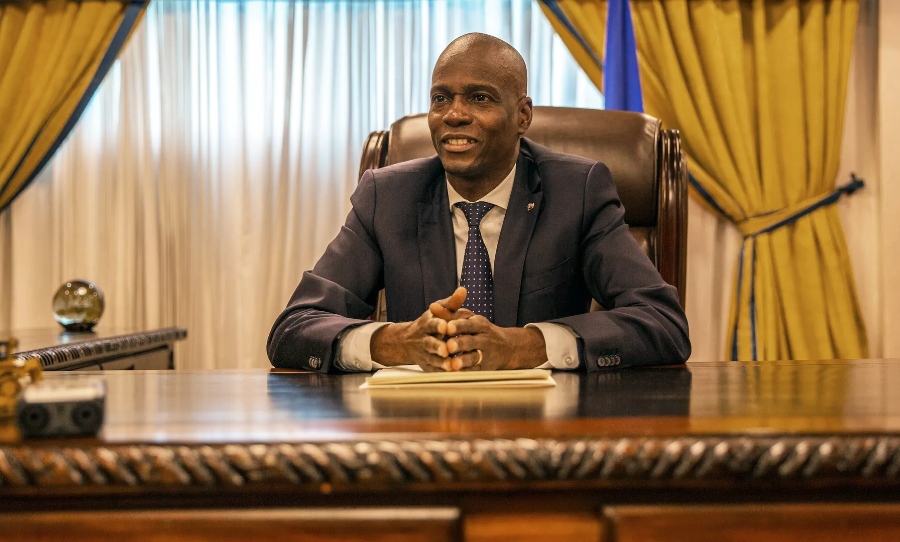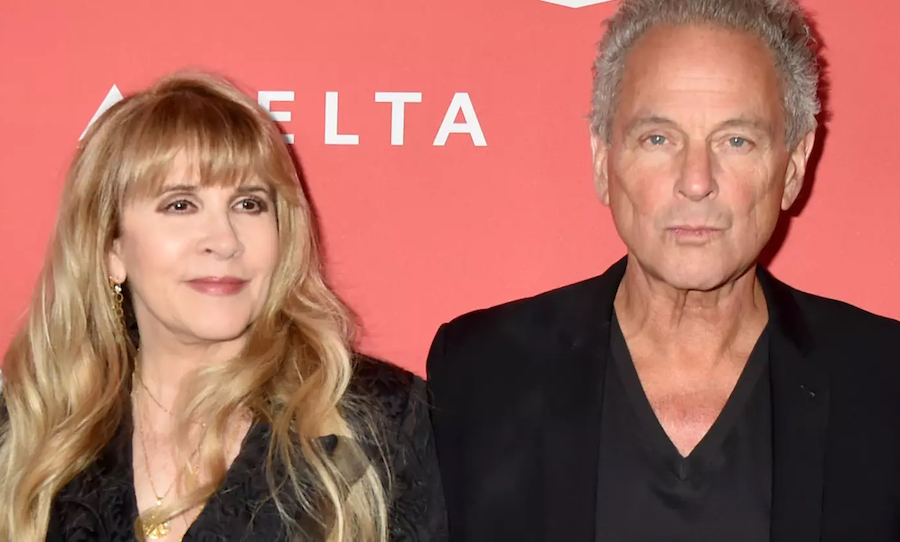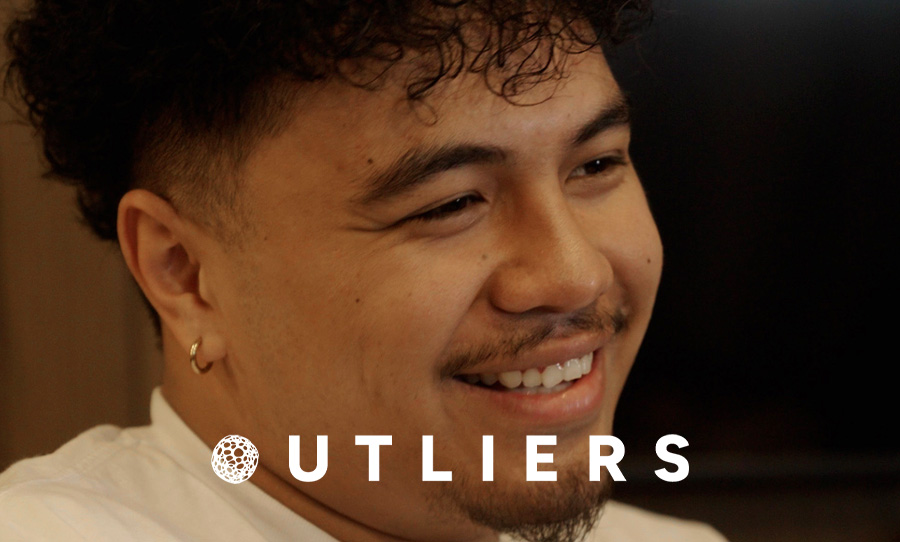The assassination of Haiti’s President, Jovenel Moïse, is the final blow, following years of mass protests demanding his resignation.
Reports claim that a group of armed men, dressed in black, stormed the President’s home in the nation’s capital, Port-au-Prince.
Moïse’s wife was injured amid the flurry of bullets that killed the former banana exporter.
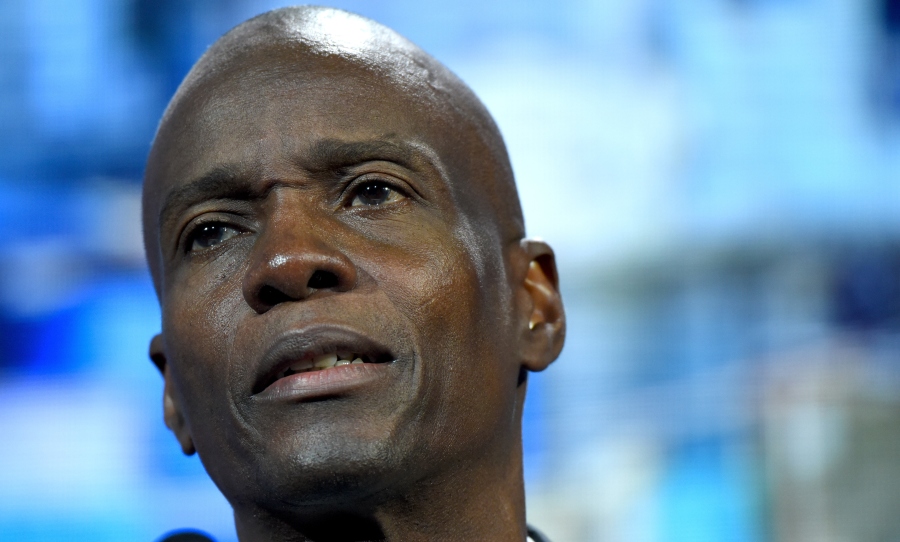
US President, Joe Biden took to Twitter to express his condolences, condemning the “heinous act.”
We are shocked and saddened to hear of the horrific assassination of President Jovenel Moïse and the attack on First Lady Martine Moïse of Haiti. We condemn this heinous act — and stand ready to assist as we continue to work for a safe and secure Haiti.
— President Biden (@POTUS) July 7, 2021
It is assumed that the group who carried out the attack were posing as members of a “US drug enforcement operation“.
Haitian ambassador, Bocchit Edmond, says that he believed this to be the work of professional assassins and that the group had no affiliation with any US entity.
Video from President Jovenel #Moïse‘s assassination in #Haiti.
The assassins claimed to be DEA; spoke a mix of Spanish & English with a US accent. Haiti’s government says highly trained foreign attackers involved. All borders & airports shut.
Read more: https://t.co/bGbuyVjn5S pic.twitter.com/XPwMI0Eh8w
— Anonymous (@YourAnonCentral) July 7, 2021
It appears tensions had been mounting for a while regarding Moïse’s presidency.
Since becoming President of Haiti in 2017, the nation plummeted further into crisis, experiencing an increase in gang attacks, which according to human rights groups, resulted in the death of at least 240 people.
Rapid inflation and deteriorating living conditions contributed to civilian frustration towards Moïse.
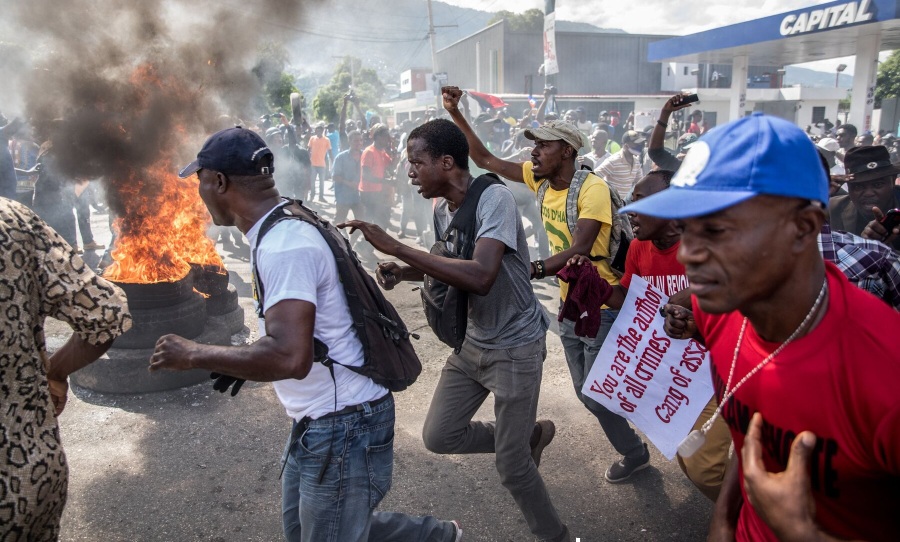
This sparked the #FreeHaiti hashtag on Twitter, with protestors claiming “Jovenel is a dictator“.
Moïse denied this label, despite refusing to hold elections for parliament in January 2020 and dismissing the country’s mayors in July 2020.
In his first year of Presidency, Moïse was accused by the Haitian Senate of embezzling around US $700,000 of public money to fund his personal banana business.
As a result, his track record did not herald a bright future for the now deceased.
It appears Haitian’s were fearful that history would repeat itself.
Moïse’s leadership brought back memories of François Duvalier and Jean-Claude Duvalier’s 30 year dictatorship.
During this time, the people of Haiti were murdered and subjected to rampant injustice for the benefit of its dictators and their international relations with the U.S.
Similarly, protests led to change, where Jean-Claude Duvalier fled, leaving his country in a state of economic and social crisis.
In light of Haiti’s tumultuous presidential history, the assassination of Jovenel Moïse may have been an act of fear for the country’s crumbling welfare and frustration with its leaders for fuelling this.
